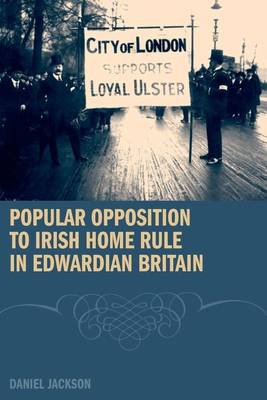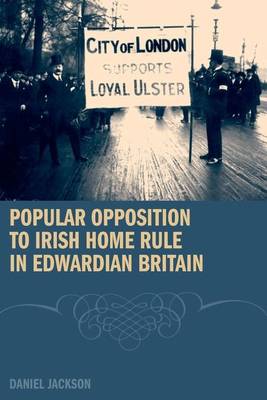
- Retrait gratuit dans votre magasin Club
- 7.000.000 titres dans notre catalogue
- Payer en toute sécurité
- Toujours un magasin près de chez vous
- Retrait gratuit dans votre magasin Club
- 7.000.0000 titres dans notre catalogue
- Payer en toute sécurité
- Toujours un magasin près de chez vous
118,95 €
+ 237 points
Description
This book is a salutary reminder that the realities of British politics before 1914 were more complex and rather different from the 'whiggish' stereotypes about New Liberalism, and the rise of Labour and class politics which have dominated our understanding of late Edwardian Britain. Jackson's groundbreaking research shows that from the start of the Third Home Rule Bill crisis, there was in Britain considerable popular interest in the Irish issue, and that the Curragh army mutiny of 1914 was not an isolated incident, but part of a wider popular movement. A well-orchestrated campaign of agitation led by Unionist leaders Sir Edward Carson and Andrew Bonar Law had so exploited patriotic and sectarian resentment at the prospect of Irish Home Rule that by 1914 the United Kingdom was on the verge of civil war. Jackson locates this movement at the end of a 'long nineteenth century', where communal and confessional identities were still as powerful as class, and where native hostility to Catholicism and Irish migration still prevailed. This work shows that the rhetoric and street-theatre of Carsonism had as much resonance in Britain as 'Protestant Ulster', where enormous crowds turned out to protest against Home Rule throughout Great Britain (and not just in the sectarian cauldrons of Liverpool and Glasgow). For Jackson, the study of these massive demonstrations becomes a way of capturing the opinions of those rendered voiceless by history, and shows how the Ulster question allowed Conservative politicians to bridge the gap between elites and masses, and elicit a degree of popular enthusiasm unmatched in the years before the Great War.
Spécifications
Parties prenantes
- Auteur(s) :
- Editeur:
Contenu
- Nombre de pages :
- 300
- Langue:
- Anglais
Caractéristiques
- EAN:
- 9781846311987
- Date de parution :
- 01-04-09
- Format:
- Livre relié
- Format numérique:
- Ongenaaid / garenloos gebonden
- Dimensions :
- 157 mm x 234 mm
- Poids :
- 612 g

Les avis
Nous publions uniquement les avis qui respectent les conditions requises. Consultez nos conditions pour les avis.






